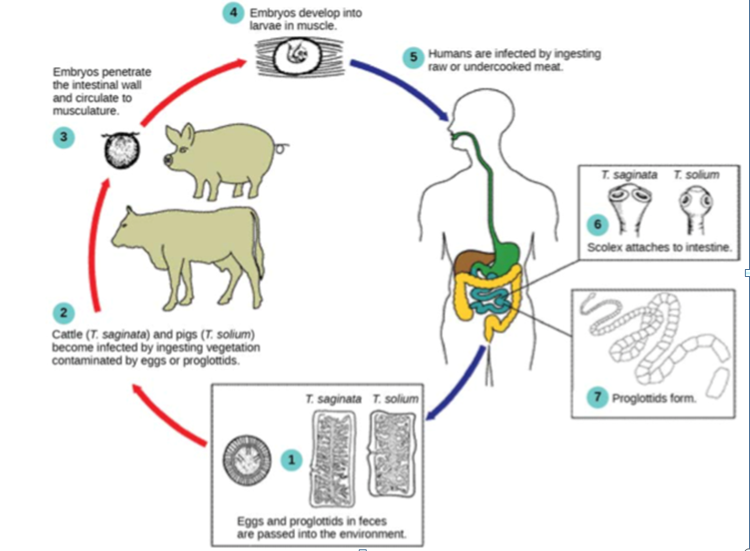The most effective level of defense against pathogens is the ____ immune system, because it ____
a. innate; recognizes specific pathogens
b. adaptive; recognizes specific pathogens
c. nonspecific; targets all pathogens
d. inflammatory response; is mediated by T cells
e. skin; provides a physical barrier against pathogens
b
You might also like to view...
The life cycle of tapeworms requires a primary and secondary host in order to be completed, as shown in the diagram. To which phylum do tapeworms belong?

a. Nemertea
b. Rotifera
c. Platyhelminthes
d. Annelida
Lipids are a class of cellular macromolecules that are ____________________ in water. Fill in the blank(s) with the appropriate word(s)
The cell membrane that surrounds all cells is said to be semipermeable. What does this mean?
A) Only particles of a substance that are small enough can pass through the cell membrane. B) The cell membrane consists of two layers of lipids with proteins that are either embedded in these layers or on the surface. C) The cell membrane always uses energy to transport particles of substances into and out of the cell. D) Only certain substances can pass through the cell membrane.
To seal the cut fragments of DNA together, an enzyme called ________ is used.
A. trypsin B. amylase C. peptidase D. ligase